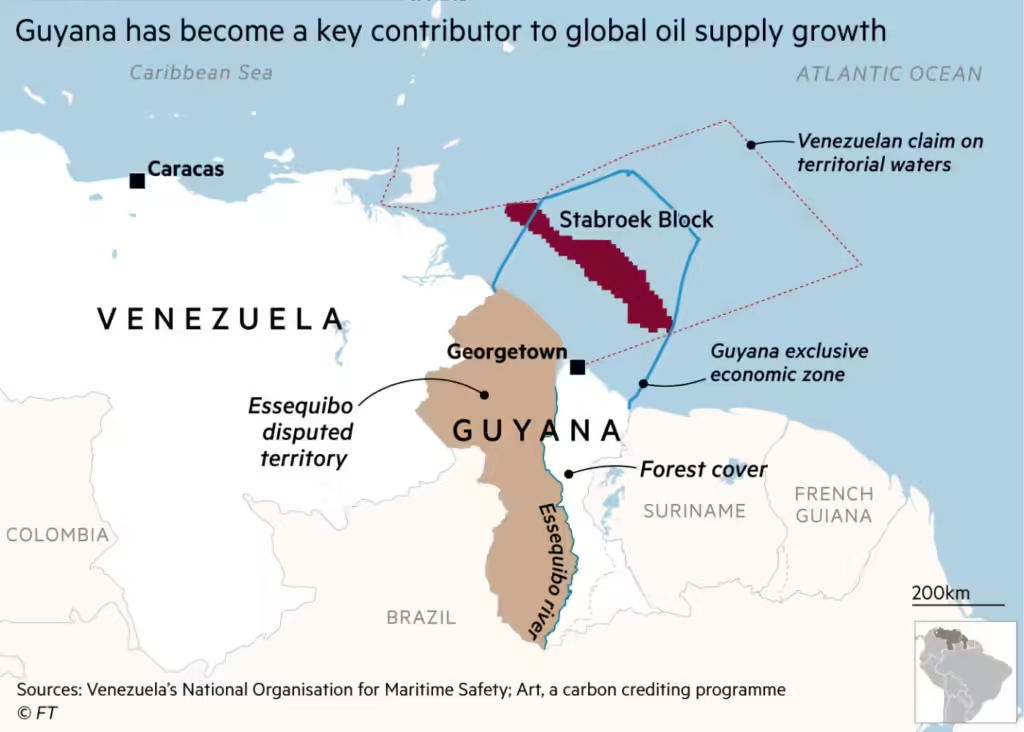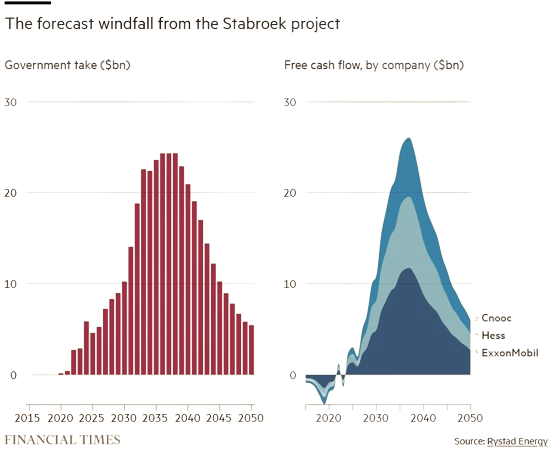In the heart of Georgetown, Guyana’s capital, ExxonMobil executives are orchestrating the expansion of one of the world’s largest offshore oil projects.
The company, along with its partners Hess and Cnooc, has discovered a staggering 11 billion barrels of oil in the Stabroek Block, transforming Guyana’s economic landscape.

This newfound wealth could bring in over $100 billion, propelling the country’s growth and development. However, concerns about the “resource curse” loom large, as history has shown that sudden resource wealth can often lead to corruption, inequality, and environmental damage.

Resource Curse: A Threat to Prosperity
Critics fear that Guyana’s oil bonanza could follow the trajectory of other resource-rich nations that have succumbed to the resource curse.
This phenomenon often leads to inflated local currency, a hollowed-out domestic industry, and increased societal division and corruption.
The 2016 production sharing agreement, considered overly generous to the oil companies, and Exxon’s close ties to the government raise red flags.
Economic Challenges and Social Unrest
While the oil boom has fueled rapid economic growth, it has also led to rising prices, putting pressure on ordinary citizens.
Nearly half of Guyana’s population lives in poverty, and rising food costs have further exacerbated their struggles.
Public sector workers, including teachers, have gone on strike to demand higher wages, highlighting the growing discontent among the population.
Lessons from the Past
Guyana’s situation echoes the experiences of other countries like Equatorial Guinea, where oil wealth benefited the ruling elite but left the majority in poverty.
Venezuela’s history of economic mismanagement and corruption due to oil dependence serves as another warning. Guyana must learn from these examples to avoid repeating their mistakes.
The upcoming 2025 election will be a crucial test for Guyana’s democracy, with the opposition parties focusing on oil revenues, Exxon’s compliance with local laws, and concerns about the resource curse.
Environmentalists also raise alarms about the project’s potential environmental impact, particularly the risk of oil spills and their devastating consequences.
The Need for Transparency and Accountability
To avoid the resource curse, Guyana must prioritize transparency, accountability, and equitable distribution of oil revenues.
The government needs to establish strong oversight mechanisms, ensure environmental protection, and invest in diversifying the economy.
Exxon, as the key player, must uphold its social and environmental responsibilities and engage transparently with stakeholders.
The discovery of oil has also heightened geopolitical tensions, with Venezuela reviving its claim to a Guyanese province that includes part of the Stabroek Block.
This has led to a military buildup on the disputed border and increased cooperation between Guyana and the United States.
A Defining Moment for Guyana
Guyana stands at a pivotal moment in its history. The oil boom presents a unique opportunity for prosperity, but it also carries significant risks.
The choices made by the government and Exxon in the coming years will determine whether Guyana can break free from the resource curse and build a sustainable and prosperous future for its people.